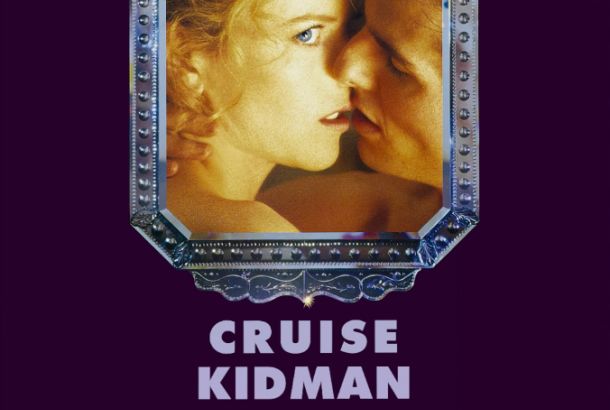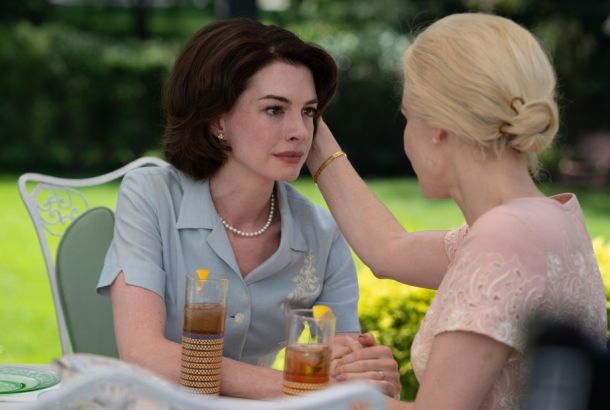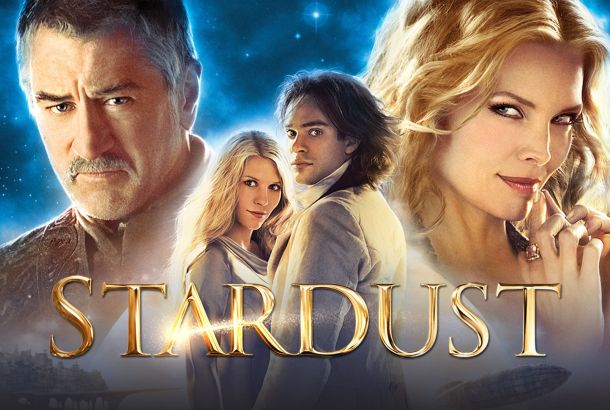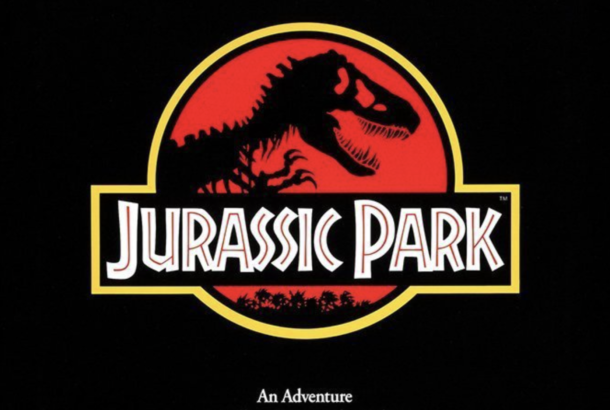Getting Gruesome at Grimmfest 2022
By pipcarew, Imogen Mingos and The Mancunion
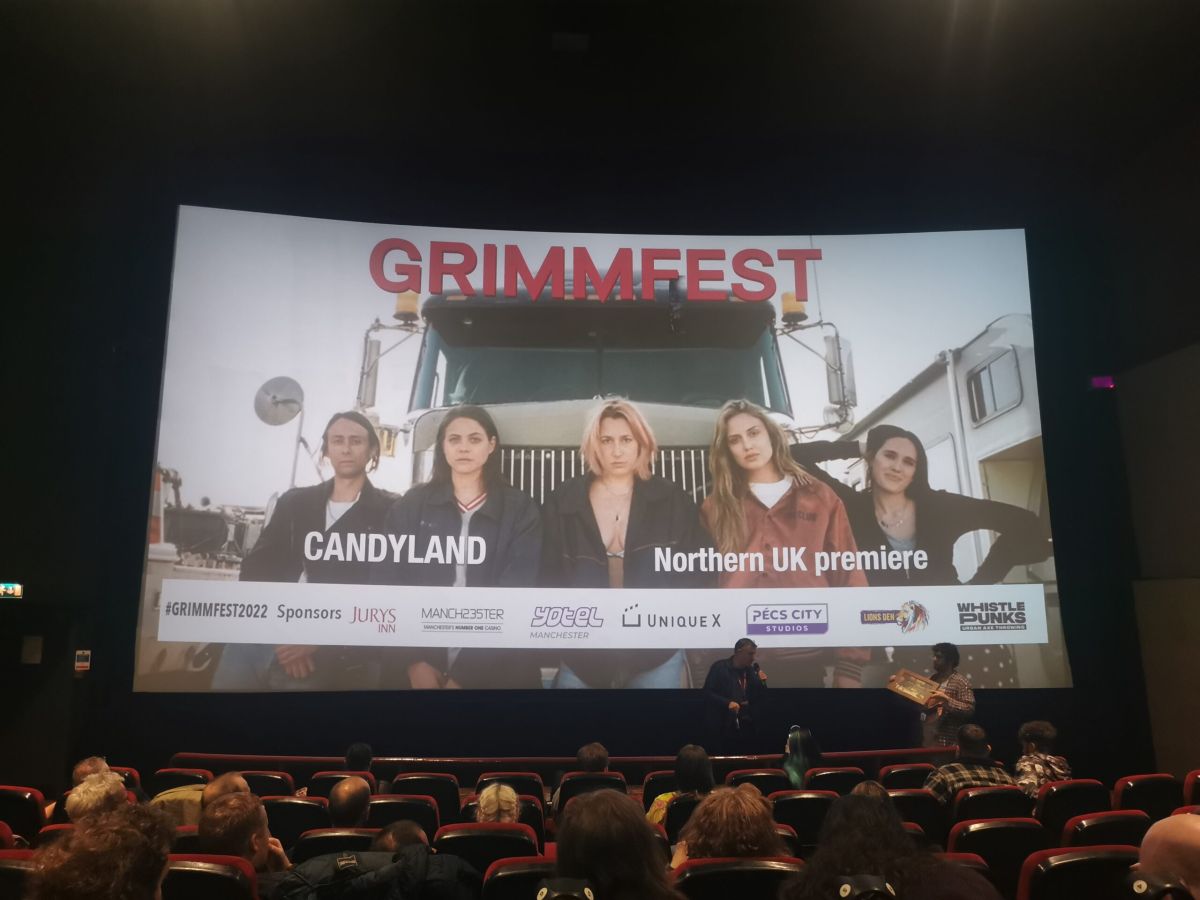
Warning: This article contains mention of sexual violence and gore
The Passenger: speaking with Director Fernando González Gómez about his artistic journey – Imogen Mingos
The Passenger (‘La Pasajera’ in Spanish), directed by Fernando González Gómez and Raúl Cerezo, is a comedy horror film about four very different people travelling together in a van across Spain who encounter an evil that possesses women and decapitates men.
When interviewing Gómez about co-directing with Cerezo and why he chose to work on a horror film, he told me that the horror and fantasy genres can be used to create a “subtext” and share “lessons about a lot of things” which is certainly evident in The Passenger wherein it contains discussions on faith, forgiveness, grief, and complex family relationships all underlined by points of high tension and terror.
There was a strong contrast between stunning cinematography and gruesome physical and visual effects. Shots of the van used beautiful striking blue, red, and yellow lighting, and close-ups of the two characters in the front showed only half of their faces.
The special effects team, who also worked on Netflix’s Money Heist, created horrifying parasitic creatures, mutilated bodies, and endless slimy gore. In spite of this, Gómez was certainly right when he said that you would be laughing five minutes later – the black comedy was perfectly placed throughout the film for just the right amount of relief amidst the suspense.
The director had no film qualifications (instead having trained as an aeronautical engineer) but his passion and creative flair have seen him achieve global success. Across his career, Gómez has directed and produced thirty-six short films, worked with rising star Ana de Armas, and won awards internationally.
His advice to aspiring film directors was “to have a team with you that trust in your ideas and make it real” and to “keep going and keep doing your things.”
4/5.
Piggy: Butchering bullies – Ibiwunmi Balogun
Earlier this year, I stumbled on Piggy (2018) (‘Cerdita’ in Spanish) directed by Carlota Pereda back when it was just a short film. This year at Grimmfest, I was presently surprised to see that Pereda has turned her award-winning short into a feature length and she definitely did not disappoint.
Piggy (2022) is an incredibly chilling nail-biter of a horror film that depicts the horrific things people do to others and raises questions surrounding morality and justice.
The protagonist Sara, played by the talented Laura Galán, is a teenage girl who is horrifically bullied by her peers who spends her days helping out at her family’s butcher shop, hunting with her father, and taking trips to the local swimming pool.
Piggy takes place in a small and warm rural village in Spain turned cold and dark by gruesome and monstrous crimes. When Sara’s bullies go missing, she is under serious scrutiny by all the other villagers as she was the last to see the three missing girls.
Director Pereda, Cinematographer Rita Noriega, and the sound design team do not give the audience a moment of peace. There is always an element of terror laced within the story that leave the viewers in a constant state of fear but also awe.
The storytelling is another strong point of this film as it uses symbolisms and parallels to really showcase the different ways cruelty manifests in humans from fatphobic bullying to cold-blooded murder.
Piggy can be enjoyed by true horror fans and film lovers. I am that one person who is not easily scared by horror films but I genuinely jumped here and there, so check it out if you think you are ‘unscareable’.
Piggy will be released in UK cinemas on October 21.
4/5.
Candy Land: Nothing sweet about John Swab’s sexploitation horror – Pip Carew
The subject of John Swab’s latest horror film is the sex workers, or “lot lizards”, that hang out at America’s truck stops. Candy Land follows the daily routine of this close-knit group of friends as a religious fundamentalist group arrives and their outlier, Remy (Olivia Luccardi) worms her way in with bloody consequences.
Swab’s film is not for the faint-hearted or those uncomfortable with the conventions of the erotic horror subgenre: sleazy, sex-driven, and brimming with every bodily fluid imaginable, Candy Land delivers on the gore factor and edges into sensory overload.
Surprisingly, however, the characters are far better developed than is usual for the slasher film or is typical of how sex workers are written. Protagonist Sadie (Sam Quartin) and other residents of Candy Land: Riley (Eden Brolin), Levi (Owen Campbell), and Liv (Virginia Brand) embody their characters with vulnerability and humour in an impressive ensemble performance.
Candy Land fails to undermine the old horror trope that those who are the most sexually active are the killer’s prime targets and the religious cult aspect of the film while provoking some tense dialogue, is underdeveloped.
One controversial scene among many involves a far-from-pious priest and the removal of his dentures will undoubtedly shock audiences with its ridiculousness and utterly compulsive watchability. Other gratuitous shots, such as the many feet that appear onscreen, fail to inspire anything other than a feeling of voyeurism and exploitation.
A commentary on the seedy side of the American Bible belt, Candy Land explores the dangers of sex work and the strong bonds formed in these communities but sacrifices the depth of the first act for shock value in the third. The final sequence is end-of-the-basement-stairs dark, as bleak and nihilistic as contemporary horror should be.
Few releases darker daring to go where Candy Land does, it is just a shame that Swab couldn’t stick the climax.
2/5.
Moon Garden: World-class world-building in this fantasy-horror film – Isabel Billington and Christopher Meadowcroft
It is Saturday morning, the second day of Grimmfest – Manchester’s Annual Horror Film festival. We are both slightly hungover and heading for the sixth film of the weekend so far. Izzy has dragged Chris out of bed to see Moon Garden (2022) which follows Emma, a five-year-old girl, through a coma-induced dreamscape as she attempts to find her way back to reality and her parents.
The film deals with the effect a broken marriage can have on a child, childhood fears, and how parental love, and ultimately hope, can be the most powerful force for reuniting a family.
This film was right up Izzy’s street, who is a lover of Labyrinth (1986) and the Wizard of Oz (1939). Chris’ expectations weren’t too high as he slouched into his Pret hot chocolate. Fantasy films are not usually his thing. Little did he know he was about to have his little crocs knocked off by this gem of a movie.
Moon Garden is a tribute to the craft of cinema filled with gorgeous practical effects, brimming with six years of devotion from Director Ryan Steven Harris and Producer John Michael Elfers, who we had the pleasure of meeting after the film during one of the festival’s Q&A sessions.
We loved the rich, industrial texture created by the practical effects and the purposefully murky cinematography of the film. Harkening back to a time before CGI and uncanny valley, the film’s heart is truly found in the hours spent creating and developing the world of Emma’s dreams and nightmares.
At the Q&A, Harris spoke of the multitude of mediums they used to create this organic effect, including cloud tank photography, miniatures, forced perspectives, and puppeteering to create a stop-motion style aesthetic and a truly tactile viewing experience.
Another merit of the film is the way Emma’s real-life experiences and fears are intertwined and embedded into the dreamscape. The teeth monster, puppeteered magnificently by Morgana Ignis, which haunts, stalks, and feeds off Emma’s tears is true nightmare fuel, with jump scares that genuinely had us jumping out of our seats. We find out the teeth monster is born from a story her father tells her about her grandpa’s teeth living in the walls.
Similarly, we see how her parents’ failing marriage influences her deepest fears. In one intense and visceral scene, a bride and groom dance upon a table: their feet sweeping glass, cutlery, and food onto the floor. Emma crouches attempting to sweep up the mess, finding it impossible as the glass piles up around her. Her desperation is palpable and as a viewer you can’t help but want to get up and sweep with her. The performance of Emma by Haven Lee Harris, the director’s daughter, is incredible for such a young actor, only seven-years-old when the film was shot.
Moon Garden (2022) was such a brilliant watch that we would highly recommend to any horror/fantasy fan. With a timeless quality and lavish worldbuilding, it warrants many a rewatch.
5/5.
The Goldsmith: Vincenzo Ricchiuto on home invasion and the human body – Pip Carew
The crown jewel of Grimmfest’s Saturday afternoon is Italian director Vincenzo Ricchiuto’s The Goldsmith. Part crime drama, part horror, and part psychological thriller with a little black humour, The Goldsmith juggles its genre hybridity with ease.
In Ricchiuto’s film, childhood friends form a criminal trio and turn up at an elderly goldsmith’s house to rob him (Giuseppe Pambieri) and his wife (Stefani Casini), but they encounter more than just gold in the laboratory. In a “bitter conception of friendship” (according to the director with whom I had the pleasure of interviewing) doubts are sewn and divisions caused, not all is as meets the eye.
The Goldsmith was postponed twice in production due to the pandemic, the effect of this time inside on the director’s vision of creating space in the film was evident, Ricchiuto commented, “they’re stuck as we were stuck the last few years… everyone feels more about being stuck.”
Preying upon insidious fears of home invasion, The Goldsmith subverts the genre traditions in a home-invasion-gone-wrong twist. Ricchiuto commented, “I like home invasions because it’s safety violated. That’s a primal fear. Everyone has this fear because everyone has a house.” In this claustrophobic setting (a villa which the cast and crew occupied during production) it is vital that the character relationships are tense and believable.
The standout performance amongst a tight ensemble is from scream queen Stefani Casini (Suspiria), who is equally terrifying and sweet. Your instinct would be to protect her… until she stabs you in the back.
The beauty of Ricchiuto’s and co-writer Germano Tarricone’s script is its character ambiguity, “You heard one story, but you see the real story. There’s bad people and very bad people. And with the ending, who is the winner?” We learn from flashbacks to the gang’s past that seeing is not always believing, thus showcasing the troublesome relationship between memory and truth.
And it is not only the house that is invaded; in later gory scenes, the human body becomes a site of invasion during surgery. The film does not sink into excessive exploitative gore, however, and maintains a delicate balance of show and tell, “if I show all the surgery, you see my way to see the surgeon. If I hide something, you imagine the surgeon, you imagine with your worst surgery operation. And that is the worst fear worse than mine because mine is different than yours.”
The director demonstrates remarkable restraint in his use of onscreen gore, “I’m a fan of not showing so much. These images, they’re just suggestions, some clues 一 you make your own fear.” This psychological trick works well; the audience was squirming during the final gruesome act. What is shown is remarkably memorable, culminating in a chilling last shot that will imprint itself on your retinas for a some time.
5/5.
Dark Nature: An Unsuccessful Scare – Ibiwunmi Balogun
Dark Nature (2022) is a psychological horror film that follows the story of Joy, a woman suffering with mental hardships brought on by her abusive ex, Derek.
To heal from the damage caused by Derek, Joy is persuaded by her friend Carmen to go on a nature retreat deep in the mountains. They are accompanied by other women 一 Shaina and Tara 一 also burdened with personal negative experiences, as well as a retreat specialist. This therapeutic journey is cut short by horrors that lurk deep in the woods.
Dark Nature highly benefits from the breath-taking location in the Canadian Rocky Mountains of Alberta Canada that reinforces the characters’ isolation from the outside world. However, this is one of the few strengths of the film as the plausibility and narrative dwindles in quality as the film progresses. Many crucial plot points go undeveloped and many questions are left unanswered, such as what field the retreat specialist works in, and what the traumatic experiences of Tara and Carmen were.
This film may have fallen short in some parts but it definitely posits that just as nature can be beautiful and inviting, it can also be visceral and dangerous. This concept is further reinforced as Shaina and Tara begin to suspect that the trauma they have lived through is somehow manifesting in the forest; interpreted as how past experiences can come back to haunt us in a way that feels as though we are reliving them.
I recognise the true potential of Dark Nature and, therefore, assume that gaps within the storytelling are due to a possibly limited budget. Unfortunately, I left the cinema room with certainly not an ounce of fear but most definitely a strong urge to go hiking.
3/5.
Pussycake: All guts but little heart – Christopher Meadowcroft
The final film I saw during Grimmfest, Pussycake, was the one I had waited for. The trailer had promised a gore-soaked extravaganza. Writer-Director Pablo Pares tells the story of a struggling girl band who, fuelled by various substances, kick off their tour. After their bus breaks down, they walk to the town only to find it completely abandoned. They soon realise something is terribly wrong and the citizens of the town are zombie/alien hybrids.
Pussycake is full of guts, gore, and cheap kicks. It feels like the kind of movie you could catch at a midnight screening in a seedy picture house with a cult following. On the surface, it has everything I love: a queer punk reimagining of zombies with a sci-fi twist, and more fake blood than you can shake a stick at. But ultimately, this film falls short.
Whilst having an abundance of guts, Pussycake has little heart. It dances around interesting ideas that could make it into something more substantial but never commits. The zombies vomit into the characters’ mouths a white-sticky substance, vomit-come-c*m-come-milk. The first time we see this happen, it seems purposefully sexual, but this element doesn’t come back into play.
Similarly, one of the members of the band is turned into an alien/zombie, her stomach is cut open, and eggs fall from her wounds as she desperately attempts to put them back inside her. This could be an interesting motif of women’s bodies in horror and science fiction, of how they are used and objectified into incubators, but this idea is not followed through in any meaningful way. The band’s singer Elle (Macarena Suarez) has flashbacks to domestic abuse she has faced but these are not portrayed with any real emotion or poignancy.
Pussycake toys with the relationship between body horror and sexual violence but never seems to pay attention to it long enough to have any real impact. That is not to say this film needed some theoretical backing or even to be saying something, I am all for fun and gore without symbolism. However, it seems there had been only a half-thought-out attempt to make this film about trauma, but without doing the necessary work.
Whilst Pussycake was a fun watch, I was left wanting more.
3/5.
The Loneliest Boy in the World: Interview with Martin Owen and Ben Miller – Pip Carew
After the death of his mother, teenager Oliver (Max Harwood, Everybody’s Talking about Jamie) sets out to find a friend in the strangest of places 一 the local graveyard. A horror comedy set in a strange 80s seaside town, The Loneliest Boy in the World tackles loss and grieving in an insightful, original way.
I met with the Director of The Loneliest Boy in the World, Martin Owen, and acclaimed comedy actor, Ben Miller (Paddington 2, Johnny English) who plays Frank, Oliver’s zombie dad. We spoke at Grimmfest 2022 about all things macabre and the making of The Loneliest Boy in the World.
There’s a long tradition of British zombie comedies and there’s certainly an appetite for the undead now (if you’ll pardon the pun), did you have any films in mind during production?
Martin Owen (Director): Those cross-genre movies like Edward Scissorhands, they’re in the horror space but they’re also in that coming-of-age space. It’s an 80s-set, 80s-written film. Something I’ve noticed about 80s-90s films is they cross genres whereas now, they’re more defined. I was thinking about those cross genre quirky horror films.
Ben Miller (Frank): Definitely the Cornetto Trilogy.
Ben, as an actor who does a lot of comedy, do you sometimes feel drawn to the macabre?
B: I like doing anything I’ve not done before and, funnily enough, playing a sentient zombie had never come up. I said to my agent, zombies don’t say anything! I read the script and thought, hang on a minute. And then getting into it and realising 一 you know, not to spoil that my character dies really early on and comes back as a completely different guy 一 it’s fantastic.
The film has a very distinctive aesthetic, how important was it for you in realising the world of The Loneliest Boy?
M: When Piers Ashworth (the writer) conceived the idea in the 80s, he always saw it as a zombie fairy-tale. So for me, it was a decision to make it look like it was in the 80s but heightened. That jumped off the page. I wanted to embrace what was already there.
M: I went a bit crazy with the pink. When we were putting the set together it was like, oh, we’ll put a bit of pink, a pink dress, oh put more pink! You don’t see that in a lot of horror movies, that kind of warmth.
The film tackles big themes like loss in a very affectionate way, do you hope audiences might glean some catharsis from it?
B: It’s very deep, it’s about grief. It’s a kid who’s lost his family essentially and recreates them using bodies from the graveyard, and then basically gets to mourn through all their support. That’s one of the things I love about the film, you can see it on a number of different levels; there’s a lot going on.
M: When Max Harwood [Oliver] and I first spoke about the character and his journey, we were talking for ages and then Max was like “Hang on, we’ve been overthinking this.” This whole thing it’s just this kid grieving for the period of the film. How he deals with grief and losing his mother.
B: You do crazy things through grief and you behave in a very extreme way and the purging at the end of it is really very satisfying, you feel renewed at the end of it.
M: I hope people don’t go and start digging people up!
One final question: if you could bring any famous person back from the dead to be your best friend who would you pick?
M: That’s a brilliant question!
B: I think Oscar Wilde. I write children’s stories and I was reading a story of his the other day called The Selfish Giant which I would really recommend. Beautiful; really really beautiful.
M: I’ve got George Michael. That’s all I’ve got.
B: I think your beard is getting there.
M: He lives again!
The Loneliest Boy in the World is out on limited release on October 14.
